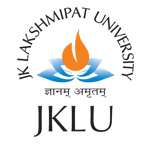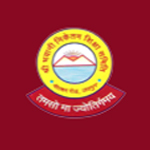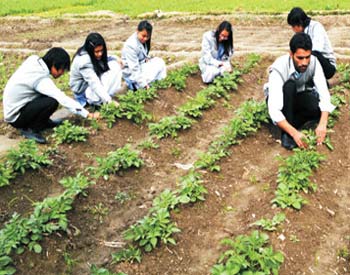
B.Sc Agriculture
Medium
Medium
3.5 LPA - 4.8 LPA
4 LPA - 5.2 LPA
4.5 LPA - 6 LPA
Table of Contents
- B.Sc Agriculture Course Highlights
- B.Sc Agriculture Course Overview
- B.Sc in Agriculture Course Description
- What is B.Sc Agriculture?
- Eligibility Criteria B.Sc Agriculture Course
- List of Top B.Sc Agriculture Colleges
- B.Sc Agriculture Syllabus
- B.Sc Agriculture Course Scope(Job Types)
- Top Recruiting Companies
- Salary Trends after B.Sc Agriculture Course
- Watch the video B.Sc in Agriculture Course Details Hindi, Career in Agriculture after 12th, Salary, Jobs, Admission
- Important FAQs regarding BSc Agriculture
B.Sc Agriculture Course Highlights
| Duration | Course Duration of Bachelor of Science [B.Sc] (Agriculture) is 4 Years. |
| Degree | Bachelors |
| Full Form | Bachelor of Science in Agriculture |
| Minimum Percentage | 50% in 10+2 from recognized board |
| Average Fees Incurred | INR 2 - 2.5 LPA |
| Average Salary Offered | INR 6 LPA [Source: Payscale] |
| Employment Roles | Agriculturalist, Agricultural Research Scientist, Agriculture Development Officer, Assistant Plantation Manager, Agriculture Technician, etc |
B.Sc Agriculture Course Overview
The cultivation of animals, plants, fungi, and crops to increase the sustainability and enhancement of human life can be categorized as Agriculture. The research and development sector associated with this field is also hopeful.
BSc Agriculture course is an Undergraduate course. The duration of the course is 4 years. The course mainly focuses on practical things, mainly on research and development work. In research work dealing with Agriculture Microbiology, Genetics and plants, Breeding, and many more. Moreover, the course is a professional degree that is recognized by the Government of India.
The course aims to provide training in Agriculture techniques in a real-world application. The candidates who want to pursue the BSc Agriculture course must have passed the class 12th examination from a recognized Board. Furthermore, the candidates must have to pass the class 12th examination with Physics, Chemistry, and Biology as the main subjects.
B.Sc in Agriculture Course Description
Being an undergraduate program B.Sc in Agriculture is of 4 years just like B.E or B.Tech. The objective of this program is the combine concepts of Biology, Technology, and Agriculture Science to boost Agricultural Productivity.
What is B.Sc Agriculture?
Bachelor of Science [B.Sc] (Agriculture) covers topics such as agriculture science, use of modern scientific equipment and techniques in agriculture, land surveying, soil science, water resource management, animal, and poultry management, basics of biotechnology, etc. The main aim of this program is to train the student for improving the productivity of agriculture, proper management, and storage of produced products, prevention of exploitation of recourses, and develop new ways for netter yielding of agriculture through research.
As India is a land of Agriculture there is ample scope in a career for students graduates from agriculture in Government as well as private bodies. An agriculture graduate can pursue higher studies too and enroll himself in Postgraduate and Research programs.
Eligibility Criteria B.Sc Agriculture Course
- The candidate should be completed 10+2 from a recognized board.
- Physics, Chemistry, Biology are mandatory subjects in 10+2 to enroll in B.Sc.(Agriculture)
- Minimum Marks criteria can vary in different Universities and colleges but minimum 40-50 % marks in PCB is mandatory.
Get Admission in B.Sc Agriculture Course
List of Top B.Sc Agriculture Colleges
|
College
Name
|
Avg. Fees Per Year |
Admis -sion Open |
|---|---|---|
| Lovely Professional University Punjab (Get up to 70% Scholarship) |
240,000 | Apply Now |
| Guru Kashi University (ICAR) Bathinda, Punjab |
2,50000 | Apply Now |
| Sage University Indore, Madhya Pradesh |
75,000 | Apply Now |
| Om Sterling Global University Hisa, Haryana |
65,000 | Apply Now |
B.Sc Agriculture Syllabus
| Semester I | Semester II |
|---|---|
| Fundamentals of Agronomy | Fundamentals of Crop Physiology |
| Fundamentals of Genetics | Fundamentals of Plant Biochemistry |
| Fundamentals of Soil Science | Fundamentals of Entomology-I |
| Fundamentals of Horticulture | Fundamentals of Agricultural Economics |
| Rural Sociology & Educational Psychology | Principles of Organic Farming |
| Introduction to Forestry | Fundamentals of Plant Pathology |
| Introductory Animal Husbandry | Production Technology for Vegetables and Spices |
| Comprehension & Communication Skills in English | Fundamentals of Agricultural Extension Education |
| Agricultural Heritage | Food Processing and Safety Issues |
| Introductory Biology or Basic Agriculture 1 | Human Values & Ethics |
| Elementary Mathematics or Basic AgricuIture 2 | Soil and Water Conservation Engineering |
| Semester III | Semester IV |
| Crop Production Technology 1 (Kharif crops) | Crop Production Technology II (Rabi crops) |
| Practical Crop Production 1 (Kharif crops) | Practical Crop Production II (Rabi crops) |
| Fundamentals of Plant Breeding | Principles of Seed Technology |
| Agricultural Microbiology | Problematic soils and their Management |
| Agricultural Finance and Cooperation | Renewable Energy and Green Technology |
| Farm Machinery and Power | Production Technology for Ornamental Crops, MAP and Landscaping |
| Principles of Integrated Disease Management | Entrepreneurship Development and Business Communication |
| Environmental Studies & Disaster Management | Introductory Agro-meteorology & Climate Change |
| Dairy Science | Poultry Production & Management |
| Fundamentals of Entomology-II | - |
| Semester V | Semester VI |
| Rainfed and dryland Agriculture | Farming System, Precision Farming & Sustainable Agriculture |
| Crop Improvement-1 (Kharif crops) | Crop Improvement-II (Rabi crops) |
| Pests of Crops and Stored Grain and their Management | Manures, Fertilizers and Soil Fertility Management |
| Agricultural Marketing Trade & Prices | Farm Management, Production & Resource Economics |
| Protected Cultivation and Secondary Agriculture | Diseases of Field and Horticultural Crops and their Management-II |
| Diseases of Field and Horticultural Crops and their Management-I | Post-harvest Management and Value Addition of Fruits and Vegetables |
| Production Technology for Fruit and Plantation Crops | Watershed and Wasteland Management |
| Communication Skills and Personality Development | Beneficial insects and Pest of Horticultural Crops and their Management |
| Intellectual Property Rights | Elective-2 |
| Principles of Food Science & Nutrition | Educational Tour |
| Geo-informatics and Nanotechnology | - |
| Elective-1 | - |
| Semester VII | Semester VIII |
| General orientation & On-campus training by different faculties | Production Technology for Bioagents and Biofertilizer |
| Project Report Preparation, Presentation, and Evaluation | Seed Production and Technology |
| - | Mushroom Cultivation Technology |
| - | Soil, Plant, Water, and Seed Testing |
| - | Commercial Beekeeping |
B.Sc Agriculture Course Scope(Job Types)
1)Private Sector Career Options
- Agriculture officer
- Assistant Plantation Manager
- Agricultural Research Scientist A
- Agriculture Development Officers
- Agriculture Technician
- Agriculturists
- Business Development Executive
- Marketing Executive
- Rice Breeder
- Seed Technologist
- Junior Agriculture Specialist
- Junior Associate – Research
2)Private Employment Area
- Agro industries
- Agriculture Marketing
- Financial sector with a focus on agriculture
- Micro-finance institutions
- Fertilizer companies Agri-biotech organizations
- Agricultural departments
- Extension services
- Research organizations
- Commercial farming etc.
3)Public Employment Area
- Ministry of Agriculture
Top Recruiting Companies
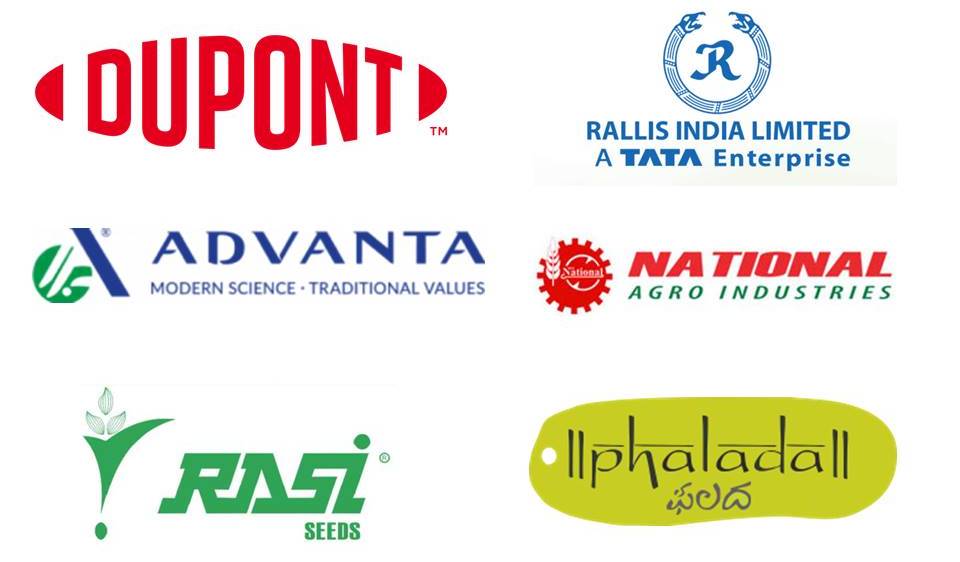
Salary Trends after B.Sc Agriculture Course
| Job Positions | Entry Level Salary (LPA) | Maximum Salary (LPA) |
|---|---|---|
| Assistant Manager (Tea and Rubber Plantation) | 3.5 | 4 |
| Assistant Manager (Cocoa, Teak, Indigo, Tobacco, Jute and pepper plantation) | 3.5 | 5 |
| Land Geomatics Surveyor | 2.5 | 5 |
| Soil Forestry Officer | 3 | 4.8 |
| Soil Quality Officer | 3 | 3.5 |
| Plant Breeder/Grafting expert | 3 | 4.5 |
| Seed/Nursery Manager | 3.5 | 5.2 |
| Budding/Tissue culture expert | 2.7 | 4.2 |
| Assistant Manager (Horticulture) | 2.6 | 4.8 |
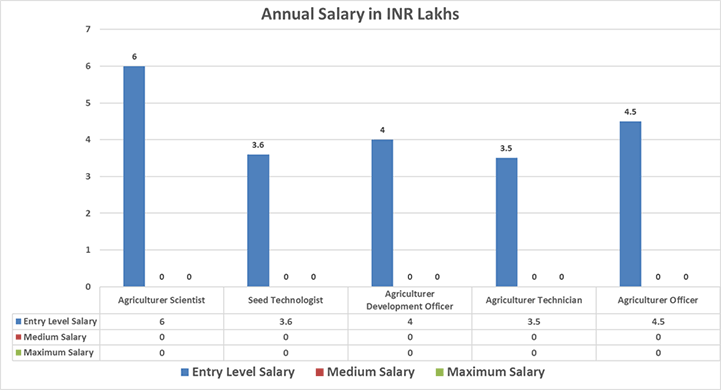
Watch the video B.Sc in Agriculture Course Details Hindi, Career in Agriculture after 12th, Salary, Jobs, Admission
Watch the video: B.Sc in Agriculture Course Details Hindi, Career in Agriculture after 12th, Salary, Jobs, Admission
Important FAQs regarding BSc Agriculture
Q1: -How can I do BSc Agriculture after Class 12?
Ans: To pursue BSc in Agriculture, you need to pass Class 12 in the Science stream with a minimum of 50 percent aggregate. Thereafter, you can apply at various universities and colleges for admission in the course.
Q2: What is the admission criteria for BSc Agriculture courses?
Ans: Most universities and colleges provide admission to candidates in BSc Agriculture courses on the basis of entrance exams. However, some universities might also offer admission to candidates based on their Class 12 scores.
Q3: What are the subjects in BSc Agriculture?
Ans: In BSc Agriculture, you are taught subjects such as:
- Agricultural Economics
- Agricultural Engineering
- Agricultural Entomology
- Agricultural Microbiology
- Agricultural Statistics
- Agronomy
Q4: Which are the top Agricultural universities in India?
Ans: Some of the top Agricultural universities in India as per ICAR Rankings include:
- National Dairy Research Institute (NDRI), Karnal
- Indian Agricultural Research Institute (IARI), New Delhi
- GB Pant University of Agriculture & Technology, Uttarakhand
- Chaudhary Charan Singh, Haryana Agriculture University (CCSHAU)
- Professor Jayashankar Telangana State Agricultural University, Hyderabad
Q5: Which are the popular BSc Agriculture entrance exams in India?
Ans: Some of the popular BSc Agriculture entrance exams in India include:
- ICAR AIEEA
- MHT CET
- UPCATET
- AP EAMCET
- CG PAT
- SHIATS Entrance Exam
- CCSHAU Entrance Exam
- Assam Agriculture University VET
- Rajasthan JET
- AGRICET
Q6: Is MHT CET compulsory for BSc Agriculture?
Ans: No, MHT CET is not compulsory for BSc Agriculture course admissions. You can also appear for national-level entrance exams such as ICAR AIEEA.
Q7: What is the salary of BSc Agriculture pass-outs?
Ans: As per PayScale, the average salary of a BSc Agriculture pass-out candidate is Rs 6.10 lakh per annum.
Q8: Is there Mathematics in BSc Agriculture?
Ans: Usually, there is no specific subject as Mathematics in BSc Agriculture curriculum.
Q9: What are the job opportunities after BSc Agriculture?
Ans: Some of the job profiles for BSc Agriculture candidates include:
- Land Geomatics Surveyor
- Soil Quality Officer
- Plant Breeder/Grafting expert
- Seed/Nursery Manager
- Soil Forestry Officer
Q10: What is the eligibility criteria for BSc Agriculture admissions?
Ans: For BSc Agriculture admissions, candidates should complete Class 12 or equivalent in Science stream with a minimum 50 percent aggregate.
Q11: What is the duration of the BSc Agriculture course?
Ans: BSc Agriculture is typical of four years duration.










